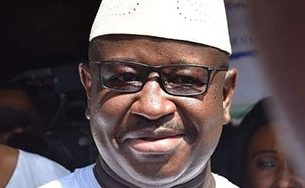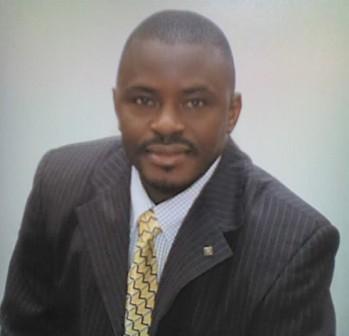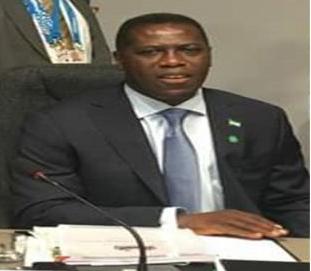Negotiated democracy versus legitimate force: What is the status of the West African leaders’ intelligence square?
Perhaps, the mistake was the hasty pronouncement of “legitimate force” vis-à-vis analyzing the consequences of a forceful removal, divulging ineffectual wimps within the West African regional group (ECOWAS); simply put the cart before the horse. The Goodluck man with no experience in international diplomacy was quick to condemn Laurent Gbagbo and called for his forceful removal but as the three wise men unfolded the ramifications of a military intervention in Ivory Coast, the group’s president opened up an intelligent square for leaders to decide on the use of “legitimate force” or to negotiate a power sharing deal as successfully implemented in Kenya, Zimbabwe and Madagascar – termed “negotiated democracy” by L. Muthoni Waneyki.
The political impasse in Ivory Coast is critical at a time when developing countries are turning attention to BRIC nations, and ECOWAS, for sure, is bound to fail in this case if Gbagbo continue to hold on to his conviction. Gbagbo claimed to be sheltered by the Ivorian constitution while Quattara seeks refuge under a UN mandate in the scramble for supreme authority. The international community have declared Quattara the winner but Gbagbo has refused to concede and defiant to international pressure. What a stubborn man. The western giants’ boisterous condemnation of the incumbent is not being complimented by the east block socio-communist silence. An opportunity for Beijing, an aggressive scavenger in Africa and Gbagbo, a socialist believer – of course, the west must be worried loosing grip. An inextricably intricate assignment and it’s becoming a tricky matter for ECOWAS leaders.
Western diplomats in the region are mindful of the crafty approach being taken by the new breed of intellectual politicians like Koroma, Johnson-Sirleaf and Wade, the open door policy in the rebirth of the scramble for Africa and the old Franco-Anglophone agreements disappearing into South-south cooperation and Sino-Africa relations. Theses diplomats have seen China shacking Europe, bailing and buying out Greece and Spain, successfully dismantling the G-7 plus one into G-20 the effect of a Beijing consensus, the formation of the BRIC and now the credibility of Sarkozy is being tested in West Africa.
Amidst global politics, West African leaders are entangled and confused because democracy is at stake and the western powers are watching them. But, the breath of peace and development greeting West Africa after almost two decades of economic stagnation cannot be jeopardise. The recent peace in Sierra Leone and Liberia are savouring massive capital investments by foreign companies and a dramatic change in the outside world’s perception of these two countries from that of fail states to that of an investor driven. US president Obama who described Sierra Leone in the Audacity of Hope as a state without law recently showered praises on the same at the United Nations qualifying the positive developments taking place in Sierra Leone. Ghana, Senegal and The Gambia are also stable and viable. Nigeria and Ivory Coast have been able to sustain their export amidst political turbulences.
These leaders know what is at stake is greater than Quattara and Gbagbo put together. After weighing the risk, re-thinking the adverse effect and calculating the loss it will have on the gains already made by some of the ECOWAS nations, the group supporting “Legitimate force” is being miniaturised by fear of the consequences on their economies. What a retraction by Atta Mills, what a blow for ECOWAS. Yayah Jammeh may be happy with the shrinkage because a return to West Africa’s recent past was eminent as blood thirsty remnants of the former warring factions in Sierra Leone, Liberia and Ivory Coast are dotted across the region. Yes, Johnny Paul the former junta leader of the Armed Forces Revolutionary Council in Sierra Leone (AFRC) still on the run. Ellen Johnson-Sirleaf, Amadou Toumani Toure and John Atta Mills may be having nightmares because Liberia, already grappling with an influx of 33,000 refugees, Mali and Ghana are neighbouring countries and their signature to use legitimate force might turn Gbagbo into a chimera against them.
Technically, we now know four leaders preferred to stay away from military intervention and or stay neutral while the faith of the Ivorian people now rest on the wisdom of the remaining horde. But, they too have issues at home to deal with: the primaries in Nigeria, a strong opposition ganging up in Sierra Leone, the illegal armed groups in Niger, the religious extremists in Mali, the fragility in Kassamas and Bissau, the personal fiefdom in Togo and the dark regime in Burkina Faso. Yes, Goodluck Jonathan, Earnest Bai Koroma, Salou Djibo, Thomas Yayi Boni, Abdoulaye Wade, Pedro Pires, Malam Bacai Sanya, Alpha Conde, Blaise Campaori, and Faure Gnassingbe have to weigh their domestic advantage.
In the extraordinary session of the authority of heads of states and government held on 24 December 2010 on Ivory Coast, they reiterated their position of 7 December 2010, especially on the status of Mr. Alassane Ouattara as the legitimate President, which is non-negotiable (item 7), but the stakes are high, the leaders are not ready to give in to initial pronouncement and the Goodluck now find himself in a den of jittery jinxes. Cognisance of the atmosphere in their backyards, a modicum of them are seeing military intervention as brewing conflicts in the region and others aren’t convinced “negotiated democracy” is way out.
No consensus, the tension is boiling in the region, ECOWAS is broken and dysfunctional as diplomatic lapses within it lead us into another failure in international relations,. These leaders must understand the frustration in the Ivorian people as well as the impatience within the West African community over the lack of wit amongst them is growing and it is copiously visible. No excuse. Three times brainstorming on the situation in Ivory Coast is enough for Mr. Victor Gbeho to give us a wrap-up of the outcome of the West African leaders’ intelligent square whether it means a break up in relation with allies, a dent in the region or dismantling of ECOWAS.
Umaru B.Kamara, Kuwait.
Stay with Sierra Express Media, for your trusted place in news!
© 2011, https:. All rights reserved.






